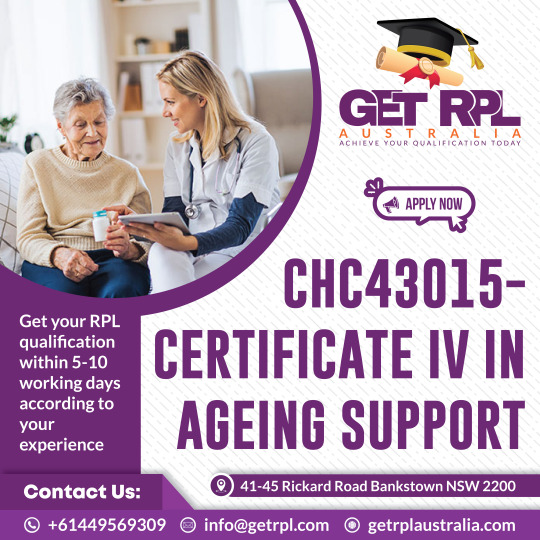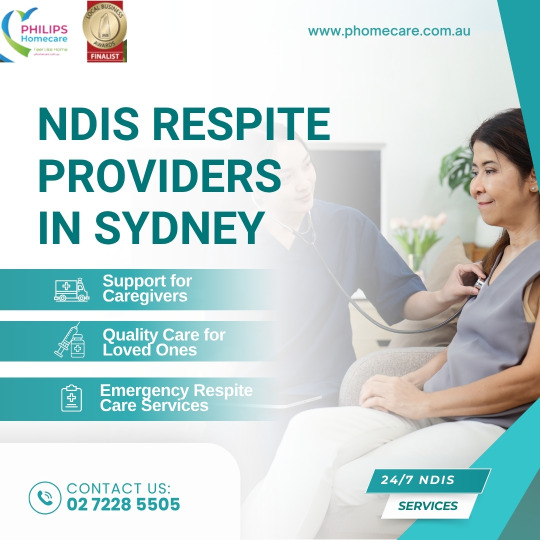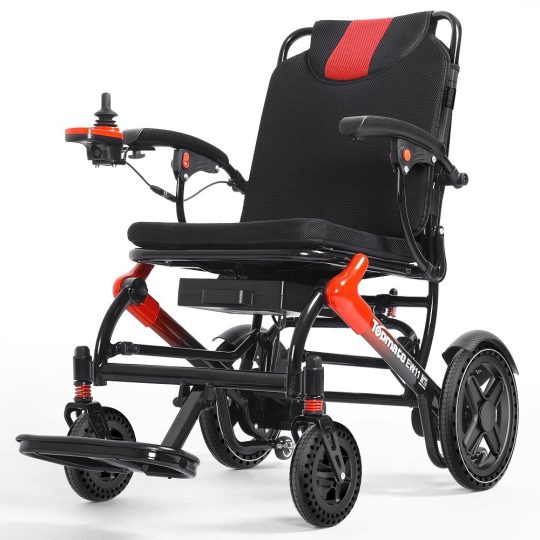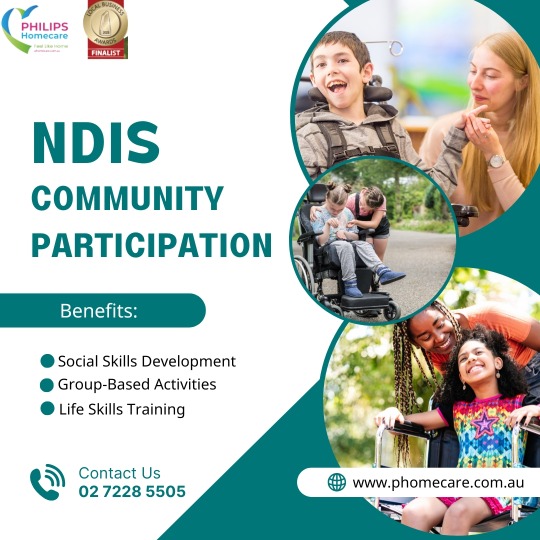#DisabilitySupport
Explore tagged Tumblr posts
Text
🧠💊❤️🩹 Schizophrenia 🧠💊❤️🩹

"Schizophrenia: If you find it challenging to spell, imagine how difficult it is to live with."
Living with schizophrenia often feels like I'm wandering through a fog that just won’t lift. There are moments when reality twists and bends in ways that others simply don’t see or understand. I hear voices and grapple with thoughts that seem to come from somewhere else, almost as if my own mind is playing cruel tricks on me. Some of these voices can be a source of comfort, making me feel less alone, while others can be harsh and judgmental, dragging me down into a dark place where despair thrives.
When I try to engage in everyday activities—like running errands or socializing—my mind often gets flooded with intrusive thoughts that pull my focus away. What seems like a simple task can suddenly feel monumental. I might find myself forgetting what I was doing halfway through or feeling completely overwhelmed by sensory inputs—too much noise, blaring lights, and sometimes just the daunting nature of starting a task can paralyze me. This struggle fosters a deep sense of isolation, as I frequently feel that people can't grasp what I'm really experiencing, making it incredibly hard to connect with them.
Emotionally, my journey is like a rollercoaster. There are days when I feel completely detached from my own emotions, as if I’m merely going through the motions of life. Other times, an intense sadness or fear crashes over me with no apparent cause. This emotional turmoil complicates my relationships. My loved ones often don’t know how to support me or they feel helpless in the face of my struggles.
Cognitive challenges also play a pivotal role in my daily life. Concentration can be a monumental hurdle, and remembering simple things can feel impossible. This makes it difficult to keep a job or pursue education. Conversations can become a challenge; I might lose track of my thoughts or struggle to articulate what I want to say. I often forget names, important dates, and what day it is, which adds to my frustration.
The stigma surrounding schizophrenia is another heavy burden I carry. Many people have misconceptions about what living with this condition truly means. I often feel judged as dangerous or unpredictable, leading to further social withdrawal and isolation. It can be disheartening because I am not a monster; I am just trying to navigate my own reality. While some people may exhibit unpredictable behaviors, not everyone with schizophrenia is on the same path. Many of us are working towards stability through medication and therapy, striving to limit the unpredictability in our lives.
Despite these challenges, I do experience moments of clarity and connection. With the right support—be it from therapy, medication, or understanding friends—I can navigate through life more effectively. It’s crucial for me, and for others like me, to be in a supportive environment that fosters acceptance and understanding. Being around negative or unsupportive people can cause my mental health to deteriorate, revealing the harsher realities of life with schizophrenia. The longer I'm surrounded by unhealthy environments, the harder it becomes to maintain a healthy lifestyle and to avoid dangerous behaviors.
Schizophrenia touches every aspect of my daily life—from managing relationships to keeping up with daily tasks & responsibilities, and even maintaining my sense of self while taking care of myself. Although it’s a lifelong condition, I firmly believe that with the right tools and support, it is possible for individuals like me to lead fulfilling lives.

My Name Is Rain & I’m Bipolar Schizoaffective.🧠
🫡Thank You For Reading 😅
#understanding#connection#mental health#mental health advocate#mental health awareness#disability advocacy#disabilitysupport#disabilties#disabled#seriously schizophrenic#schizophrenic disorder#schizophrenia awareness#schizophrenic spectrum#schizoposting#bipolar schizoaffective#actually schizophrenic#schizoaffective#schizophrenia#paranoid schizophrenic#mental health struggles#mental health first#mental health stuff#mental health is important#mental health is health#mental health improvement#understanding mental illness#mental illness#mental illness awareness#spread awareness#you are not alone
13 notes
·
View notes
Text

New episodes of HEnabled are out! Sometimes marketing with a disability can be tough so excuse the VERY belated post 😅 The following episodes are now out:
Pad's Story: Navigating university with a new ASD diagnosis.
Sam's Burning Questions: My friend Sam does not have any disabilities but wanted to learn more about disability in a judgement-free environment; I gave him a platform to do so in this episode.
Marie-France's Story: Getting reasobable adjustments in both university and internships with a late ADHD diagnosis.
You can listen to the show on Spotify here or wherever you get your podcasts! I would love to know what you think. A new episode will be out this Sunday!
#Henabled#DisabilityInHigherEd#PodcastSchedule#DisabilityAwareness#InclusionMatters#AccessibilityForAll#DisabledVoices#ChronicIllnessCommunity#NeurodiversityInAcademia#SpoonieSupport#InvisibleDisability#DisabilityAdvocate#MentalHealthAwareness#DisabilityJustice#AcademicAccessibility#LearningDisabilities#AdaptiveEducation#DisabilityRights#DisabilityPride#HigherEdInclusion#DisabilitySupport#DisabilityLife#AbilityNotDisability#DisabledAndProud#InclusiveEducation#DisabilityCommunity#EducationForAll#DisabilityInclusion#AccessibleLearning#DisabledStudents
3 notes
·
View notes
Text

🌟 Elevate Your Career in Ageing and Disability Care from 'Get RPL Australia' 🌟
Are you an experienced professional in the aged care or disability care sector? Take the next step in your career by formalizing your expertise with a nationally recognized qualification.
🎓 CHC43015 - Certificate IV in Ageing Support Achieve this qualification through RPL (Recognition of Prior Learning) with 'Get RPL Australia', the trusted name in helping professionals transform experience into formal credentials.
📞 Start Your Journey Today and Contact 'Get RPL Australia' today
Visit our Facebook page https://www.facebook.com/GetRPLAustralia
Office Address: 🏠 45 Rickard Road Bankstown, Sydney, NSW 2200, Australia, New South Wales. Contact Us: Call: 0449 569 309 Email: [email protected] Website: https://www.getrplaustralia.com/ Instagram: https://www.instagram.com/get_rpl_australia/
#RPL#CareerBoost#getrplaustralia#RPLSuccess#nationallyrecognised#certification#RecognitionOfPriorLearning#rplcertificate#australia#melbourne#sydney#CertificateIII#diploma#Qualification#healthcare#individualsupport#ageingsupport#healthandcommunitysector#education#migration#agedcare#disabilitysupport#healthcareprofessionals#DeepSeek
3 notes
·
View notes
Text
Video description: The main background is a white door with a part of the ceiling and wall showing. A light brown-skinned female is wearing a tie-dye hoodie with sunflower earrings. She has a mole on the right side of her cheek and is wearing her hair back in a ponytail with tinted chapstick.
Earrings made by Trini's Creations on IG at @Fashionablycreativewithtrini
2 notes
·
View notes
Text

Our NDIS Respite Providers in Sydney offer compassionate short-term care to support both participants and families.
#disabilitysupport#ndisprovider#ndissupport#ndis housing#disability accommodations#ndis accommodation#ndis home care#short term accommodation#respite accommodation#respite services
0 notes
Text
Apply for Madhubabu Pension Yojana – Step-by-Step Online Guide
Looking to apply for the Madhubabu Pension Yojana in Odisha? This easy-to-follow guide walks you through the complete online application process. Learn about eligibility criteria, required documents, and how to check your pension status. Perfect for senior citizens, widows, and persons with disabilities seeking government support. visit for more information :-
#MadhubabuPension#OdishaGovernment#PensionScheme#ApplyOnline#SocialSecurity#OldAgePension#DisabilitySupport#GovernmentBenefits#PublicWelfare
0 notes
Text
Top 10 Daily Living Aids for Independent Living in 2025

Whether you're a senior, an NDIS participant, or supporting someone with mobility needs, these expertly recommended aids are transforming daily life.
From innovative walkers to smart adaptive tools, this curated list by Assistive Tech Hub features the most trusted mobility living aids products of 2025—designed to boost confidence, comfort, and independence at home or on the move.
#DailyLivingAids#IndependentLiving2025#AssistiveDevices#NDISApproved#MobilitySupport#AgedCareAustralia#AssistiveTechnology#ElderlyCare#SeniorsAustralia#DisabilitySupport
0 notes
Link
Empowering every step. From therapy to tech, interventions help children move forward.
1 note
·
View note
Text
AISH Benefits - Essential Support for Disabled Albertans
AISH Benefits provide up to $1,901 monthly and extensive health coverage for Albertans with severe permanent disabilities. EBSource details eligibility, application procedures, and coordination with employee benefits. Understanding AISH supports over 70,000 residents with financial and medical stability.
0 notes
Text
⚠️Agoraphobia⚠️
youtube
A Guide To Understand & Help The Experience Of Agoraphobia
Agoraphobia is a term that evokes different reactions from people, often misunderstood or oversimplified. For those who may not know, agoraphobia is an anxiety disorder characterized by an intense fear of being in situations where escape might be difficult or help unavailable in the event of a panic attack or related symptoms. It can lead individuals to avoid places or situations that they perceive as threatening, often resulting in them feeling trapped in their own homes or limiting their activities to a significant extent.
Living with Agoraphobia
Living with agoraphobia can be a complex and isolating experience. It’s not simply a matter of being shy or introverted; it’s an overwhelming fear that can restrict daily life. Imagine waking up and feeling anxious at the thought of stepping outside your front door. For me, the world beyond my home feels daunting, filled with unpredictable encounters that can trigger anxiety or panic. Everyday tasks can become monumental challenges—grocery shopping, attending social gatherings, or even walking to the mailbox can provoke intense feelings of dread.
For many who experience agoraphobia, the boundaries of comfort shrink significantly. Over time, the once-familiar routines become sources of anxiety. Inviting friends over can feel safer than going out, yet it can lead to feelings of isolation, loneliness, and frustration. The struggle often intensifies when loved ones don’t fully understand what it’s like to live with this condition, which further complicates the emotional landscape.
Helping Someone Navigate Their Experience
If you know someone living with agoraphobia, your support can make a significant difference. Here are some ways to help them navigate through their experiences:
1. **Educate Yourself**: Understanding agoraphobia is crucial. Educate yourself about the disorder, its symptoms, and triggers. This knowledge will enable you to empathize and provide meaningful support.
2. **Listen Without Judgment**: Create a safe space for your loved one to express their feelings. Be an active listener, validating their experiences without minimizing their fears. It’s important for them to feel heard and understood.
3. **Encourage Gradual Exposure**: Instead of pushing them to face their fears head-on, encourage small steps toward overcoming those fears. This could mean taking a short walk outside or sitting on a porch. Celebrate each achievement, no matter how small.
What Not to Do
While your support can be invaluable, there are also pitfalls to be cautious of:
1. **Avoid Minimizing Feelings**: Statements like "Just get over it" or "It’s all in your head" can be damaging. Agoraphobia is a genuine mental health condition, and minimizing their feelings can lead to increased anxiety and shame.
2. **Don’t Force Situations**: Forcing someone to confront their fears without preparation can lead to panic attacks or worsen their symptoms. Respect their pace and boundaries.
Navigating a Crisis
If your loved one experiences a traumatic agoraphobic crisis, whether in public or at home, here’s how to help:
1. **Stay Calm**: Your calm demeanor can provide reassurance. Speak softly and avoid escalating the situation with panic or frustration.
2. **Create a Safe Space**: If they’re in public, find a quiet area where they can regroup. At home, help them retreat to a comfortable space free of stressors.
3. **Use Grounding Techniques**: Encourage them to focus on their breath, count their breaths, or identify objects around them. Grounding techniques can help divert their focus from panic.
What Not to Do in Public
When in public situations, be mindful of the following:
1. **Avoid Calling Attention**: Loudly discussing their agoraphobia or drawing attention to their anxiety can amplify their feelings of embarrassment and panic.
2. **Don’t Dismiss Their Feelings**: If they express discomfort, don’t downplay their experience or insist that they should be fine. Acknowledge their feelings and offer support.
Daily Support Needs
Support for someone with agoraphobia often requires understanding their day-to-day needs:
1. **Help with Errands**: Offer to accompany them on errands, or help manage tasks like grocery shopping or making appointments. This companionship can ease anxiety.
2. **Encouragement for Routine Tasks**: Simple tasks like housekeeping or meal preparation can feel overwhelming. Offer to assist or break these tasks into manageable steps.
Noticing Unseen Behaviors
People with agoraphobia may exhibit subtle signs that indicate their emotional state. Being aware of these unnoticeable behaviors can help you provide better support:
1. **Changes in Body Language**: Watch for signs of tension, like clenched fists, avoidance of eye contact, or fidgeting. These may indicate rising anxiety levels.
2. **Withdrawal from Social Interaction**: If they suddenly stop engaging in conversations or isolate themselves, it might signal an increase in their anxiety.
3. **Changes in Routine**: If they suddenly stop attending events or engaging in activities they once enjoyed, it may indicate a worsening of their condition.
Understanding these nuances allows you to anticipate their needs and provide a more supportive environment.
Agoraphobia can stem from various causes, often involving a combination of genetic, psychological, and environmental factors. Here are some key contributors:
1. **Panic Disorder**: Many individuals with agoraphobia have a history of panic attacks. The fear of experiencing a panic attack in a public space can lead to avoidance behaviors, resulting in agoraphobia.
2. **Genetics**: Family history plays a role in the likelihood of developing agoraphobia. If you have relatives with anxiety disorders, you may be more susceptible to developing similar conditions.
3. **Personality Traits**: Certain personality traits, such as being more anxious, sensitive, or introverted, may increase the risk of developing agoraphobia. Individuals who struggle with low self-esteem may also be more prone to anxiety.
4. **Traumatic Events**: Experiencing a traumatic event, such as a serious accident or a violent crime, can trigger agoraphobia. The fear of having a similar experience can lead individuals to avoid situations that remind them of the event.
5. **Stressful Life Events**: Major life changes, such as the loss of a loved one, divorce, or job loss, can contribute to the development of agoraphobia. These events may heighten feelings of insecurity or vulnerability.
6. **Environmental Factors**: Growing up in an unpredictable or stressful environment can influence the development of anxiety disorders, including agoraphobia. Overprotective parenting or frequent changes in living situations may also contribute.
7. **Other Mental Health Issues**: Co-occurring mental health disorders, such as generalized anxiety disorder, depression, or social anxiety disorder, can increase the risk of developing agoraphobia.
Understanding these potential causes is essential for recognizing and addressing agoraphobia effectively. If you or someone you know is struggling with this condition, seeking professional help can provide the necessary support and treatment.
Conclusion
Living with agoraphobia can be an isolating experience, yet with understanding and compassion, we can help those who struggle with it navigate their challenges. Whether you’re directly experiencing agoraphobia or supporting someone who is, remember that empathy, patience, and education are key. By fostering open communication and creating safe spaces, we can contribute to healing and understanding, allowing love and support to thrive amidst the challenges. Together, we can illuminate the path toward hope and recovery.

#escape#escape route#agoraphobia#actually agoraphobic#agorafobia#mental health#mental health advocate#mental health awareness#anxiety struggles#anxiety stuff#anxiety support#anxiety disorder#help and support#helpful#helpful mental illness advice#mental health advice#mental health struggles#mental health stuff#actually mentally ill#mental illness#anxiety strikes again#when anxiety strikes#how to help#great advice#overcoming adversity#disability advocacy#disabilitysupport#disability accommodations#disability access#disability activism
7 notes
·
View notes
Text
"As individuals, we are our own worst enemy. If you have a dream to study at a particular university, don't talk yourself out of it." This week on the HEnabled podcast, I was joined by the wonderful Martin! Martin struggled with school due to his dyslexia and did not enter higher education until he was in his 30s. He now holds five master's degrees from elite UK universities, including LSE, Imperial, UCL, Royal Holloway, Oxford, and Cambridge. He currently works at PWC. This week's episode truly showcases Martin's persistence and tenacity in all kinds of educational environments. You can listen to it now on Spotify via the embedded link or wherever you get your podcasts!
#InclusionMatters#AccessibilityForAll#DisabledVoices#NeurodiversityInAcademia#InvisibleDisability#DisabilityAdvocate#MentalHealthAwareness#DisabilityJustice#AcademicAccessibility#LearningDisabilities#DisabilityRights#DisabilityPride#HigherEdInclusion#DisabilitySupport#DisabilityLife#AbilityNotDisability#DisabledAndProud#InclusiveEducation#DisabilityCommunity#EducationForAll#DisabilityInclusion#AccessibleLearning#DisabledStudents#EquityInEducation#HEnabled#Oxford#Cambridge#UCL#LSE#Imperial London
2 notes
·
View notes
Text
♿🏙️ accessibleleeds.com is available!
A clear and inclusive domain ideal for accessibility services, guides, or community initiatives in Leeds. Local, user-friendly, and built to serve all.
🔗 Grab it now: www.godaddy.com/en-uk/domainsearch/find?domainToCheck=accessibleleeds.com
#AccessibleLeeds#LeedsCommunity#DisabilitySupport#InclusiveDesign#LocalServices#DomainForSale#LeedsAccessibility
0 notes
Text
🧠💺 Freedom in Motion: Meet the TopMate EW11 Electric Wheelchair – Red Edition
Lightweight. Foldable. Airline-Approved. Because mobility should never mean limitation.
If you're searching for comfort, control, and confidence in a compact design, the TopMate EW11 Power Wheelchair is the one to watch. Whether you're heading to the store, traveling by plane, or enjoying a day outdoors, this foldable electric wheelchair adapts to your life—not the other way around.
🔥 Why the TopMate EW11 Is a Game-Changer:
🔋 Dual Motors – Experience smooth, powerful performance across a range of terrains.
🧳 Foldable & Portable – Packs up quickly and fits easily into car trunks or tight storage spaces.
⚡ Removable 24V 12.5Ah Battery – Charge it on or off the chair; approved for airline travel so you can go global.
🪑 Comfort-Focused Design – Ergonomic seat and backrest make long rides feel effortless.
🧍 Built for Adults & Seniors – Supports independence without sacrificing safety or style.
🔁 Easy Maneuvering – Responsive controls, tight turning radius, and solid tires for a reliable ride indoors and outdoors.
🎨 Bold Red Finish – Sleek, modern, and unapologetically eye-catching.
Whether you’re traveling across town or across the country, the EW11 is your trusted companion for every journey.
🎁 Limited Time Offer: Get 5% OFF
Use promo code W5HQ2HWS at checkout when you buy directly or from select platforms.
💬 Mobility is freedom. And freedom starts with the right wheels. Let the TopMate EW11 take you there.

0 notes
Text
The Motorstep MS600C is an electric caravan step lift designed to help people with disabilities or limited mobility get in and out of motorhomes safely and effortlessly. No more struggling with tricky steps—just push a button and go!
Compact, strong, and weatherproof, it’s perfect for any adventure. 💪
Check it out here → motorstep.net/caravan-motorhome-electric-step-lift-disability
#Accessibility #DisabilitySupport #CaravanLife #MotorhomeAdventures #TravelForAll
0 notes
Text
Why Outsource NDIS Staff Services?
The National Disability Insurance Scheme (NDIS) in Australia has transformed the way disability support services are delivered. While this person-centered model offers great opportunities for innovation, it also places significant operational, compliance, and administrative burdens on service providers. To meet these demands while remaining agile and cost-effective, many NDIS providers are increasingly turning to outsourced staff services.

Outsourcing NDIS roles—such as support coordinators, plan managers, compliance officers, administrative assistants, virtual staff and rostering personnel—is becoming not just a tactical choice, but a strategic move for sustainable service delivery. Below, we explore the top reasons why outsourcing NDIS staff services is gaining momentum among providers nationwide.
1. Cost Efficiency: Minimise Overhead Without Compromising Quality
NDIS providers often operate within tight budget constraints dictated by participant plans and NDIA funding levels. Hiring in-house staff can incur a range of expenses including:
Recruitment and onboarding costs
Superannuation and payroll tax
Training and upskilling expenses
Workers' compensation insurance
Office infrastructure and equipment
By NDIS outsourcing, providers can cut operational costs by up to 50%, especially when leveraging offshore staffing solutions from countries like the Philippines or India. These cost savings allow providers to reinvest in frontline services, ensuring more value is delivered to participants.
📊 According to Deloitte's 2023 outsourcing report, over 59% of healthcare and disability organizations cite cost reduction as their primary driver for outsourcing.
2. Qualified Talent Pool: Access to NDIS-Ready Professionals
NDIS compliance and service delivery require a nuanced understanding of:
Plan management and NDIA portal systems
Funding rules, item numbers, and invoicing structures
Participant needs, goals, and privacy laws
Safety, risk, and incident reporting obligations
Outsourcing firms that specialize in the disability sector provide NDIS-trained staff who can seamlessly integrate with your internal operations. These professionals are familiar with the NDIS Practice Standards, Quality and Safeguards Commission, and NDIA requirements—allowing providers to maintain high service standards without extensive training.
✅ Example Roles Commonly Outsourced:
Support Coordinators who manage participant goals and linkages
Plan Managers to handle budgeting and financial admin
Rostering Officers for shift scheduling and workforce management
Virtual Assistants for everyday admin, follow-ups, and data entry
Compliance Officers who monitor audits, policies, and quality indicators
3. Scalability: Adapt Quickly to Changing Service Demands
Participant needs, funding levels, and service scopes can change rapidly in the NDIS environment. Providers often face challenges in scaling up staff during growth phases or reducing overheads during slowdowns.
Outsourcing provides an on-demand staffing model, allowing you to:
Scale operations up or down without lengthy hiring/firing processes
Onboard staff within days, not weeks
Access temporary, part-time, or project-based workers
Maintain workforce flexibility without compromising service continuity
This model is particularly useful for small to mid-sized providers looking to grow without taking on full-time salary burdens too early.
4. Focus on Core Services: Reduce Admin Load and Burnout
Many NDIS providers are stretched thin trying to juggle direct care responsibilities with back-office tasks such as rostering, documentation, NDIA billing, HR compliance, and scheduling. These tasks, while necessary, often take time and focus away from what truly matters—participant wellbeing.
Outsourcing allows internal teams to redirect energy toward:
Improving participant engagement
Enhancing care outcomes and feedback
Building community relationships
Innovating programs and support offerings
🧠 According to an Australian Institute of Health & Welfare (AIHW) survey, over 65% of disability support staff experience admin-related burnout. Outsourcing admin tasks is a proven strategy to combat this.
5. Improved Compliance: Stay Aligned with NDIA and Audit Standards
The NDIS Commission mandates regular audits, risk management plans, complaint handling processes, and quality improvement protocols. For many small to medium-sized providers, staying on top of these regulations can be both time-consuming and stressful.
Outsourcing to companies that specialize in NDIS services gives providers access to compliance-ready teams who:
Monitor regulatory changes
Implement continuous improvement plans
Prepare audit documentation
Help maintain registration and renewals
📌 Fun Fact: Some outsourcing firms even offer end-to-end NDIS compliance packages that include internal audits, policy reviews, and corrective action plans.
Real-World Example
A Melbourne-based NDIS provider recently outsourced its plan management and compliance documentation to a virtual staffing company. Within three months:
Admin processing time was cut by 40%
The provider passed its NDIS mid-term audit with zero non-conformities
Participant satisfaction scores rose due to faster service delivery
Outsourcing NDIS Staff is a Strategic Advantage
The NDIS landscape is competitive and constantly evolving. By outsourcing staff roles strategically, providers can achieve a leaner, more efficient operation—without sacrificing quality or compliance.
Whether you’re a new provider looking to build your workforce affordably, or an established organization aiming to optimize admin and compliance, outsourcing is a proven path to sustainable success in the NDIS sector.
🔹 Key Benefits at a Glance:

Want to Get Outsourcing Staff for NDIS?
If you're considering outsourcing NDIS staff roles, choose a provider that understands both NDIS processes and Australian business standards. Look for options offering dedicated account management, flexible contracts, and verified NDIS expertise.Smart Staffing is a trusted outsourcing partner for Australian NDIS providers, offering virtual staff for plan management, admin, support coordination, and more—from just $1799/month. Speak to us today to learn how we can support your mission.
#outsource staffing#outsource company#australia#NDISProviders#DisabilitySupport#SmartStaffing#OutsourceStaff#VirtualAssistants#NDISSupport#NDISStaffing#NDISCompliance#NDISPlanManager
1 note
·
View note
Text

Our NDIS Community Participation programs empower individuals to build skills, make friends, and enjoy life to the fullest.
#disabilitysupport#ndisprovider#ndissupport#ndis housing#disability accommodations#ndis accommodation#ndis home care#community participation#social activities
0 notes